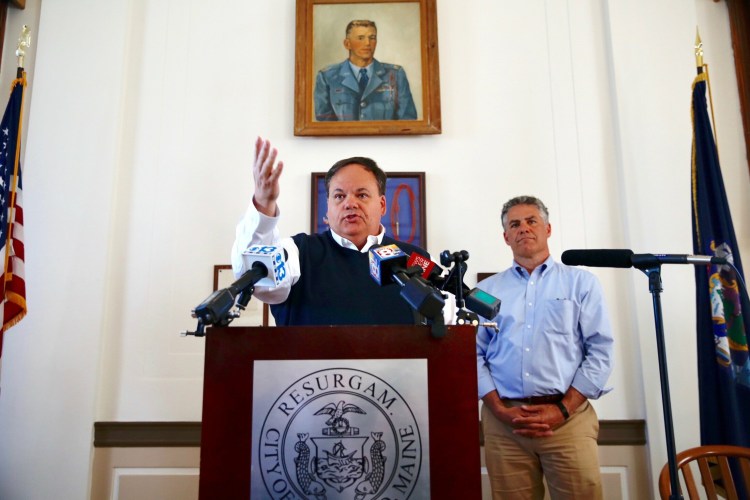When Portland voters go to the polls in November, they will have the opportunity to elect a mayor. Some people may be surprised to learn that this right was denied to Portland residents from 1923 until 2011. While the term “mayor” invokes thoughts of prestige and power, Portland’s mayor is in reality more like a “super” City Council member. In short, the mayor has more in common with a meeting chair than with “strong” mayors like those in Boston and New York City. Portland residents, as evidenced by recent efforts to expand ranked-choice voting and implement municipal clean elections, hunger for political reform and greater social equality. They should consider aiming their next efforts at reducing the power of or outright eliminating the city manager position while overhauling the City Council as well.
The city charter has given the majority of political power, such as the authority to appoint city officials and draft the city budget, to the city manager since 1923. In that year, voters, responding to religious and ethnic bigotry whipped up by the Ku Klux Klan, voted en masse to install a city manager and, in effect, ensure marginalized people would have little say in city government. Elsewhere, the city manager system was used to keep working-class and oppressed people from entering city government. As one pro-city manager historian wrote in 1940: “In short, the native born white middle class dominates the situation.” While the City Council has become more diverse, that diversity has not meant that poor and otherwise marginalized people have a voice in the city. This system allows the city manager to dominate city government and guarantee that the voice of the business class takes precedence. This was not always so.
Through the first two decades of the 1900s, Portland’s voters favored socializing key industries. In 1905, voters rejected a proposal that sought to centralize authority in the mayoral position. A year later, Portlanders voted 3-1 in favor of purchasing the privately owned water company, which led to the creation of the Portland Water District two years later. In 1912, socialists led a successful campaign that sought to eliminate fuel profiteering through the creation of a municipal coal yard.
Workers displayed their militancy as well. In 1911 and 1913, Irish dockworkers went on strike and shut down the bustling waterfront during the peak shipping season. In July 1916, on the cusp of World War I, Portland’s trolley workers walked off the job to protest against the Wall Street-owned company that employed them. Newspapers at the time called it the “greatest general strike ever known” in the city or state. Community solidarity and a municipal government, which included a significant amount of those from outside the traditional power structure, refused to bust the strike.
The United States joined World War I less than a year after the victorious trolley workers returned to work. Over the next few years, a wave of anti-immigrant sentiments swept the country. In Portland, these were so high that anyone who spoke against the war ended up under investigation or worse. In one case, the pacifist minister at First Parish Church was burned in effigy and forced to leave town. In this ultra-patriotic fervor, the Ku Klux Klan arose in the city, its principal contribution being – in conjunction with the Portland Chamber of Commerce – the establishment of the city manager system.
While the business class has diversified since the installation of the current system, it is still clear that the system has created a Portland that is not a city for all people. It is not a city for the homeless, the working-class renter nor for the majority of the city’s public-school attending children who suffer from food insecurity. These are the effects of government in which power rests with the business class.
Given the state of Portland for the working class and marginalized, it should be clear that city government does not work for them. An important means of keeping the “business and professional men” on top is the continued existence of the city manager. Portlanders should consider building a more democratic system in which decisions are made by elected residents, not professionals with no ties to the community. Perhaps then Portland will be a city for all people.
Send questions/comments to the editors.



Success. Please wait for the page to reload. If the page does not reload within 5 seconds, please refresh the page.
Enter your email and password to access comments.
Hi, to comment on stories you must . This profile is in addition to your subscription and website login.
Already have a commenting profile? .
Invalid username/password.
Please check your email to confirm and complete your registration.
Only subscribers are eligible to post comments. Please subscribe or login first for digital access. Here’s why.
Use the form below to reset your password. When you've submitted your account email, we will send an email with a reset code.